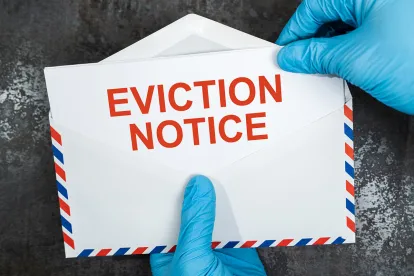With increased cases of COVID 19, most industries are holding their breath as to how these cases will continue to affect their businesses. This is especially true for residential landlords. Since this past March there has been a mix of federal and state moratoriums restricting landlords from evicting tenants for non-payment of rent. The most recent moratorium on residential evictions was issued by the Centers for Disease Control and Prevention (CDC). The CDC’s order entitled “Temporary Halt in Residential Evictions to Prevent the Further Spread of COVID-19,” which took effect upon publication in the Federal Register on Sept. 4, declares a national moratorium on certain residential evictions in the name of protecting the public health. See 85 Fed.Reg. 55292 (Sept. 4, 2020).
The creation of Order established a protection for a certain category of tenants, so long as they executed a Declaration Form asserting their qualifications as a “covered person.” Once a tenant provides the declaration, the text of the order states that a landlord shall not “evict” the tenant from residential premises. See 85 Fed.Reg. at 55296.
While the CDC Order was issued to protect tenants, the ambiguities of the CDC moratorium have left the state courts to issue a patchwork of local Administrative Orders interpreting the moratorium and putting new process in place at the Magisterial District Court and Court of Common Pleas levels. The result? Unequal access by landlords to challenge the truthfulness of the CDC Declaration.
A review of the 67 judicial districts reveals a handful of counties that address the CDC moratorium and how it affects current landlord-tenant procedures. Additionally, certain counties provide remedies for landlords to challenge the truthfulness of the Declaration Form. By certain counties allowing landlords to challenge the truthfulness of the Declaration Form, it allows the moratorium to protect those truly defined as a “covered person.” A majority of the judicial districts however are silent as to the landlord’s ability to challenge the Declaration Form, thus leaving landlords frustrated in scenarios where the tenant may not truly be a covered person and are allowed to remain in their apartment with little to no consequence.
With the number of COVID-19 cases increasing and the lack of any additional economic stimulus packages available will the CDC Moratorium be further extended? If it is, will the state Courts address the inequitable remedies currently created amongst the local counties? Only time will tell.



 />i
/>i

